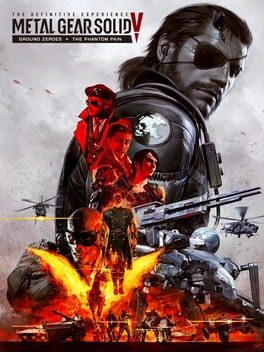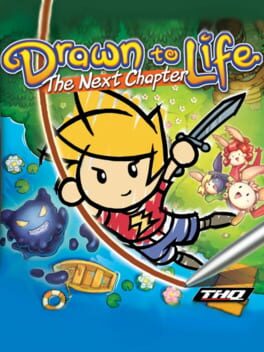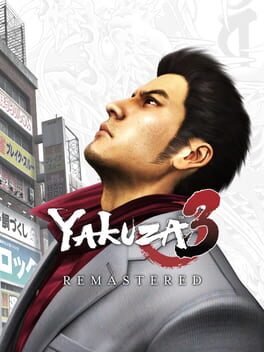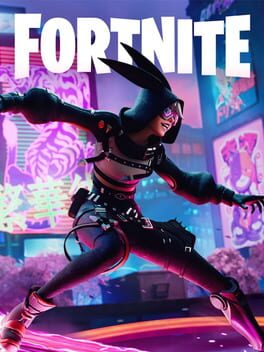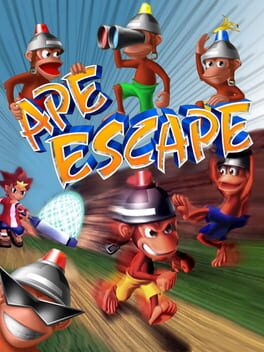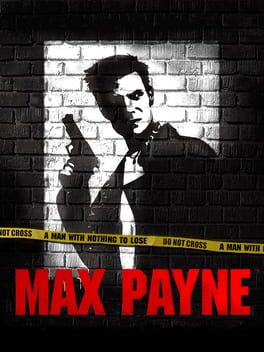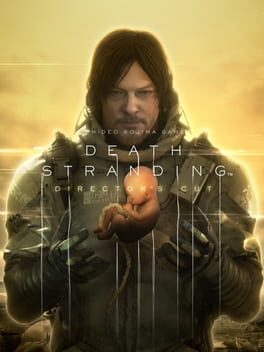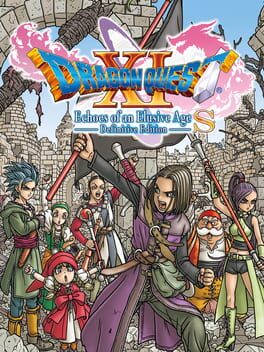catonline878
2015
people keep wanting to dig deeper and deeper into undertale, its metatextuality becomes an all-consuming force in which all themes of undertale have to be about undertale because undertale is about undertale, but no!!!! the game has things to say about stuff other than itself and i’d argue that its only interested in itself as a metaphor for much more material themes. it juxtaposes treating the game as a lived in world full of characters versus treating the game as pile of content not to say “treating games as piles of content is bad” but as a metaphor about why living out our, like, actual lives as strictly instrumental is bad.
readings of it being exclusively or even primarily about fandom or the way we interact with games are so limiting. It's such a loving and emotionally honest game and reducing it to a snake eating its own tail makes me sad.
readings of it being exclusively or even primarily about fandom or the way we interact with games are so limiting. It's such a loving and emotionally honest game and reducing it to a snake eating its own tail makes me sad.
If Metal Gear Solid 4 proved anything, which I'm not sure it did, it proved that "ending" Metal Gear Solid was not as simple as telling a final story that wraps up the series' plot by blabbing on about each of its characters, and so Metal Gear Solid V decided upon the opposite.
Metal Gear Solid V is a game that refuses to explain itself. Its narrative lies in quietly humming each of the series' personal and political themes. Its grand tricks are found within how rote it feels when you're told, arbitrarily, to "eliminate" a target, how your eyes glaze over as you select every face and name that speaks Kikongo as it slips from feeling like murder to feeling like mechanics. Its soul rests in the moment you see a "Big Boss is watching you" poster and, in contemplating that you disagree with this use of your face, realize that you have become more symbol than man.
This game is "unfinished" because it never can be finished, there is no conclusion to a story about an unescapable status quo that doesn't contradict either the "unescapable" or "status quo" parts of that phrase.
MGS 1, 2, and 4 tell a story of the next generation, how maybe, just maybe, the next generation can do just a little bit better than us, and how maybe that can rub off onto the future generations. Death Stranding tells a story that implores us not to give us hope in our quest to help fix things right here and right now. But this is a story that is desperate and angry about us right here and right now, its suffering heightening Kojima's other works about healing.
Also, the way it plays totally rules. Genuinely one of the best feeling third person video games I've ever played. I enjoy the immediate sensation of hitting the w key on my keyboard in this game more than entire other games that I like, and it offers the most interesting guard AI and alert system in the series.
Metal Gear Solid V is a game that refuses to explain itself. Its narrative lies in quietly humming each of the series' personal and political themes. Its grand tricks are found within how rote it feels when you're told, arbitrarily, to "eliminate" a target, how your eyes glaze over as you select every face and name that speaks Kikongo as it slips from feeling like murder to feeling like mechanics. Its soul rests in the moment you see a "Big Boss is watching you" poster and, in contemplating that you disagree with this use of your face, realize that you have become more symbol than man.
This game is "unfinished" because it never can be finished, there is no conclusion to a story about an unescapable status quo that doesn't contradict either the "unescapable" or "status quo" parts of that phrase.
MGS 1, 2, and 4 tell a story of the next generation, how maybe, just maybe, the next generation can do just a little bit better than us, and how maybe that can rub off onto the future generations. Death Stranding tells a story that implores us not to give us hope in our quest to help fix things right here and right now. But this is a story that is desperate and angry about us right here and right now, its suffering heightening Kojima's other works about healing.
Also, the way it plays totally rules. Genuinely one of the best feeling third person video games I've ever played. I enjoy the immediate sensation of hitting the w key on my keyboard in this game more than entire other games that I like, and it offers the most interesting guard AI and alert system in the series.
Every child should have some piece of media that is surprisingly traumatic to form the daring edge of their taste, and looking back, this was mine. Beating this game as a child and seeing its utterly unhinged ending definitely sparked something in me. Ruined my life by leading to the chain of events that would lead to me becoming a "Backloggd user" who cares about video games as an "artistic narrative medium" that should have "themes". The patterns that have emerged in how I read games, especially my favorite games (Undertale and Metal Gear Solid 2), seem clearly rooted in my childhood experience with this one work.
It grapples with themes of escapism, divine command, and the nature and value of reality in a way that made me, at the age of maybe eight years old, pause and consider, internalizing concepts that would impact me long after. The literature, television, and film I like has also, most definitely, been affected by this game, as well as, I suspect, the way I’ve grappled with religion and philosophy throughout my young life.
But, there are many kids out there who played this game and yet were not shocked and appalled by the ending to the same degree. They did not have the opportunity to glean themes about escapism, to be hit like a train by its sudden and unexpected darkness without it being suddenly undercut.
Later printings of the game change the ending to be something lighter, less shocking, and less meaningful during its final twist. Now, I realize that I’m getting myself significantly worked up about a ratings complaint directed at a kids game that, for as much as it affected me and thus is a forever 5 star game in my book, is only really “sort of okay” rather than actual, politically significant cases of censorship, but hear me out.
If I didn’t play this game as a kid, if I didn’t grapple with this work of art that I found genuinely challenging, I would not love the medium in the manner that I do, and it’s a deep shame that other kids didn’t get to experience what I did. It’s shocking, flawed, rough, and yet interesting and weird and philosophical in a way that art aimed at children rarely is, and so of course I latched onto it and it made me a different person, it was a whole new frontier of experience.
I guess what I’m trying to say is that, from my own experience of having been a child, children need to be able to experience art that is genuinely a little subversive. I worry that with the overwhelming cultural dominance of companies like Disney and Epic Games and Warner over children’s media, there won’t be as much space for things that are at once childish (this game is immature, easy, and simple) and hugely weird.
Is it really worth getting worked up that my favorite kids game changed its ending? Not really, but I do believe that there is room for me to be a little sad for children who aren’t able to see anything quite like the game’s original ending, which I worry will be more and more children.
It grapples with themes of escapism, divine command, and the nature and value of reality in a way that made me, at the age of maybe eight years old, pause and consider, internalizing concepts that would impact me long after. The literature, television, and film I like has also, most definitely, been affected by this game, as well as, I suspect, the way I’ve grappled with religion and philosophy throughout my young life.
But, there are many kids out there who played this game and yet were not shocked and appalled by the ending to the same degree. They did not have the opportunity to glean themes about escapism, to be hit like a train by its sudden and unexpected darkness without it being suddenly undercut.
Later printings of the game change the ending to be something lighter, less shocking, and less meaningful during its final twist. Now, I realize that I’m getting myself significantly worked up about a ratings complaint directed at a kids game that, for as much as it affected me and thus is a forever 5 star game in my book, is only really “sort of okay” rather than actual, politically significant cases of censorship, but hear me out.
If I didn’t play this game as a kid, if I didn’t grapple with this work of art that I found genuinely challenging, I would not love the medium in the manner that I do, and it’s a deep shame that other kids didn’t get to experience what I did. It’s shocking, flawed, rough, and yet interesting and weird and philosophical in a way that art aimed at children rarely is, and so of course I latched onto it and it made me a different person, it was a whole new frontier of experience.
I guess what I’m trying to say is that, from my own experience of having been a child, children need to be able to experience art that is genuinely a little subversive. I worry that with the overwhelming cultural dominance of companies like Disney and Epic Games and Warner over children’s media, there won’t be as much space for things that are at once childish (this game is immature, easy, and simple) and hugely weird.
Is it really worth getting worked up that my favorite kids game changed its ending? Not really, but I do believe that there is room for me to be a little sad for children who aren’t able to see anything quite like the game’s original ending, which I worry will be more and more children.
2001
2019
2018
The endgame of intellectual property, the concept of "owning" a character or concept has culminated in this. I was in a car with Geralt of Rivia and Doomguy when Hollywood Baby by 100 gecs started blasting. Once it has VR support it will be the metaverse and The Matrix. I want to be jacked into the computer and shown characters I know forever. Funko Pop incarnate.
1999
2001
I'm seeing an inner-circle-esque secret faction of losers and haters surrounding me from all sides, from within Discord servers and on this very website, conspiring to talk shit about the baby blood platforming sequences. Unfortunately for this dark and cruel caucus, the atmospheric context of these scenes makes for a perfect setpiece as the very logic of the game crumbles around you within those stunningly great dream sequences.
There's also only like 5 minutes of it across the entire game.
There's also only like 5 minutes of it across the entire game.
1993
I knew this game was truly something special not in a grand reveal, not in a spectacular twist, or even an amazing boss fight. I knew it was special when, during a minor story chapter involving a scared kid, the kid is not merely treated as a quest giver. Rather, one of your party members kneels down to the child's level to talk to him, to cheer him up, and to calm him down. Such a profound love is expressed on the part of both that character (who is the best party member in the game) and on the part of the writer for bothering to put in such an interaction.
2006
1994

